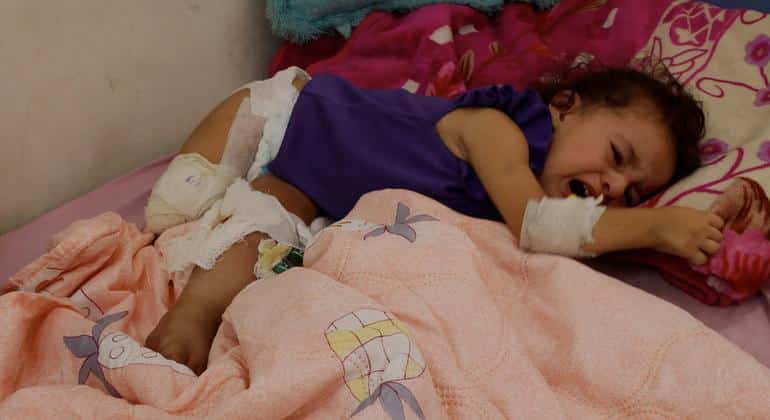Sure! Here’s the translation:
—
A recent report from UN researchers has generated deep concern worldwide. According to the document, Israel is committing genocide in the Gaza Strip, where more than 65,000 people have died in less than two years. The Independent International Commission of Inquiry has stated that the actions of the Israeli state aim to “destroy the Palestinians in the Strip as a group.” Chris Sidoti, the Australian commissioner, has emphasized that the deaths are not the result of accidents or collateral damage, but rather a deliberate military strategy that includes intense bombings and “scorched earth” policies.
The report details that Israeli authorities have perpetrated four of the five genocidal acts defined by international law, encompassing homicides and the imposition of conditions threatening the existence of Palestinians. Sidoti has documented the devastation of homes, hospitals, and schools in the region, describing the situation as unsustainable.
Holding the highest levels of the Israeli government accountable, including President Isaac Herzog and Prime Minister Benjamin Netanyahu, the chair of the Commission, Navi Pillay, has urged the international community not to stay silent, warning of the danger of complicity in genocide.
In this context, Israeli forces have launched a ground invasion in the city of Gaza, carrying out bombings on residential buildings. The UN Human Rights Office has called for an end to “indiscriminate destruction,” warning that these actions could be part of an attempt at permanent demographic change, aligning with definitions of ethnic cleansing. Meanwhile, hospitals in Gaza face severe limitations, and doctors must make difficult decisions about patient care.
Despite the crisis in the Middle East, another study has revealed the positive impact of Venezuelan migrants on the economy of Ecuador, where their households are estimated to contribute nearly $900 million annually. This finding highlights how, when migrants access rights and opportunities, they can be a valuable asset to the host countries. However, additional analysis has indicated that 77% of countries in Latin America lack effective strategies to prevent drownings, even though mortality rates in the region are below the global average. These situations underscore the complexity of challenges in the region, ranging from conflicts in the Middle East to migration and public health issues in Latin America.
—
Let me know if you need anything else!
Source: MiMub in Spanish











